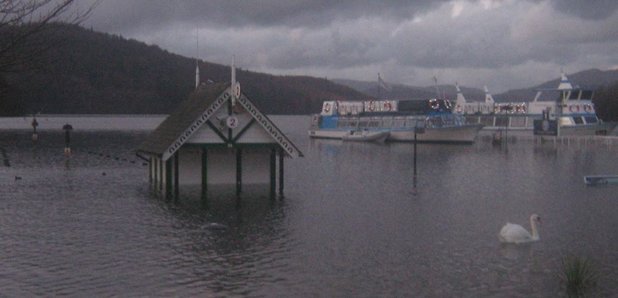Cumbria Group Responds To Flood Report
10 May 2019, 06:42 | Updated: 10 May 2019, 06:43

Cumbria Action for Sustainability says we need to cut carbon emissions.
They've responded to an Environment Agency report on flooding yesterday, which said some coastal communities will have to be moved in their entirety due to rising sea levels.
The group says we can't win the war against water by jsut bnuilding infinitely higher flodd defences, we need to make changes like moving away from fossil fuels.
Hazel Graham, chief executive of Cumbria Action for Sustainability, said: "We agree with calls by Emma Howard Boyd, chair of the Environment Agency, for more funding for flood management and with the Agency’s assessment of the scale of adaptation that’s needed, but the UK must take urgent action to cut carbon emissions so that we can avoid worse impacts in the future. We must treat the causes of these changes in our climate – as well as dealing with the symptoms.
"Rising sea levels are one of the symptoms of climate change, caused by global warming, and unfortunately this will get worse before it can get better. We’ve warmed our planet by 1 degree Centigrade since we started burning fossil fuels like coal, oil and gas, which gives off carbon emissions that trap the Sun’s heat. Levels of carbon emissions are still rising globally but if governments take urgent action now, we can still stop our planet warming beyond 1.5 degrees, and prevent the likely irreversible and catastrophic changes that would occur beyond that point. Even at 1.5 degrees, we know that some areas will be lost to rising seas, but we have the opportunity to protect many more communities living in coastal areas around the world.
"Governments have to take unprecedented actions now – much more than they have committed to so far. Even if countries fulfil the commitments they made at the UN climate conference in Paris in 2015, the Earth will warm by 3 degrees centigrade. We cannot allow this to happen because it will mean an estimated 275 million people living in coastal areas will lose their homes to rising seas. Meanwhile, at 3 degrees of warming, other parts of the world will become uninhabitable due extremes of heat and cold, drought and flooding – not to mention the massive loss of species and the breakdown of our food systems."






















